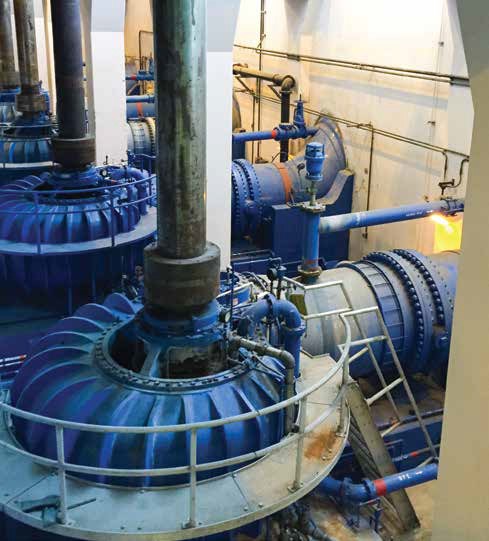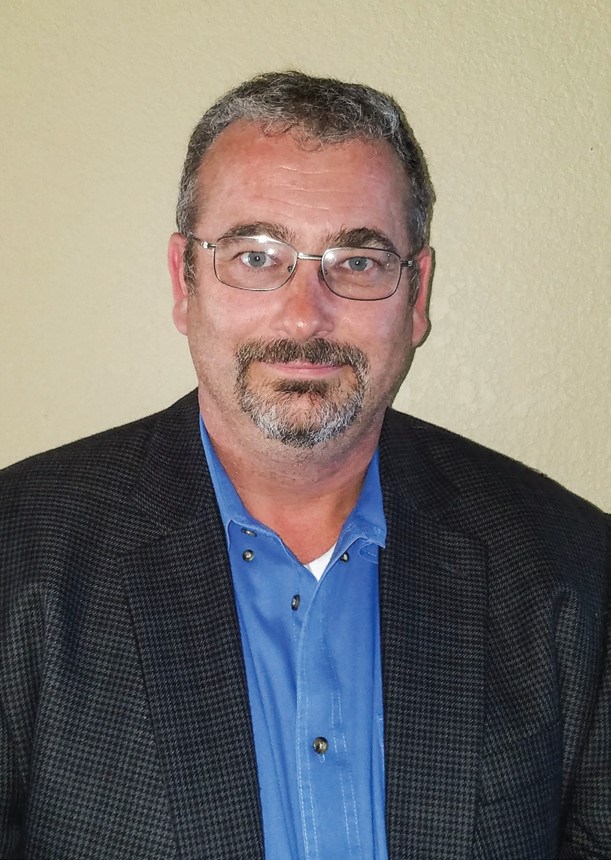Valve World Americas recently sat down with Jay Humphrey to discuss his experience working as an Expeditor, his interaction with various applications and materials, and his advice for new procurement and materials management professionals in the industrial sectors.
By Brittani Schroeder, Angelica Pajkovic and Catarina Muia
When Humphrey began his academic career, he had no idea he would end up working for an engineering company. “I intended to become a lawyer, but after getting married and hearing my friends’ experiences from law school, I decided it was not for me. So, I decided to pursue other avenues,” he said.
After graduating from Lamar University in Beaumont, Texas, with a Bachelor of Science, Humphrey spent two and a half years as a logistics professional in Iraq. His primary role was materials management and supply chain logistics for the military efforts taking place there. Upon returning to the United States, he began a position in materials management for BP and remained with the company for roughly six years.
“I eventually became the System Administrator for BP’s inventory tracking software, and we developed the software that makes it easier to keep track of all the inventory the company had acquired. The goal was to streamline the purchasing process, and eliminate accidental ordering duplications or loss of materials,” explained Humphrey. Following BP, Humphrey became the Materials Manager at Fluor, where he worked on a nuclear reactor construction site for a year.

A Senior Expeditor’s Role
Humphrey is currently a Senior Expeditor at S&B Engineers and Constructors. In his role, he travels to various vendor locations to monitor the progress of the fabrication and assembly of components for the company’s various projects. While the type of component being fabricated varies from project to project, and typically has a wide range of applications, many are primarily used in the construction of drilling and fracking sites for major oil companies. “For the first time in my career, I have a position where I am involved in the fabrication process. Before this role, the materials were usually already fabricated, and I was involved in the moving and cataloguing processes,” Humphrey related. “Now, I am actually going in and visiting our vendors to make sure the fabrication process is going smoothly and everything is running on schedule for our projects in the oil and gas industry.”

Working on a Schedule
When Humphrey visits a vendor, his day typically starts off in a brief meeting with the Contract Administrator, or someone in a similar role. Here, he and the Contract Administrator will discuss the fabrication schedule in detail. Topics such as, where in the production process the facility is situated; whether the items are on track to be completed on time; and are there any forecasted delays or challenges that the facility may need to prepare for, are generally discussed.
“After this brief meeting, I will go out to the shop to make sure projects are at the stage the vendors say they are, and that steps are being done in the proper order. If the shop is having any issues, the pre-meeting is the perfect time to bring it up,” said Humphrey. “As they know I am going to inspect the shop, there is no use in trying to hide any issues they may be experiencing. It is much better to voice the issue and let me know what they are doing to improve the schedule.” After the walkthrough has been completed, Humphrey will share his findings with the Houston office, and the team will come up with a plan and prioritize the next steps.
If a delay occurs, Humphrey relays all relevant information to the team of engineers in the company’s Houston office. These engineers will then talk to sub suppliers to see if there is anything they can do in order to apply pressure or use leverage to get what they need prioritized, to ensure deadline dates are met. “Delays happen on projects roughly 50% of the time. Anything that does not meet our specifications will delay our schedule, because we will need to go back to the supplier and get the right item for our project,” said Humphrey. “The supplier agrees to the specifications and the delivery date, and knows that our construction schedule is dependent upon their ability to provide the items to us on time. So the specs and schedule are not a surprise to anyone.”
“The communication I have with our vendors, the ability to convey our needs and expectations, and getting feedback from them, is my favorite part of the job. I enjoy travelling to meet our vendors and being able to work with them to come up with solutions to challenges we encounter.”
Humphrey admitted that he most enjoys the communication aspect of his work. “The communication I have with our vendors, the ability to convey our needs and expectations, and getting feedback from them, is my favorite part of the job,” he said. “I enjoy travelling to meet our vendors and being able to work with them to come up with solutions to challenges we encounter.”
In a world where things often happen that are completely beyond our control, it is no surprise to Humphrey when he is called in to address an unexpected challenge. “Usually, if I show up at a vendor’s facility, it is because something has gone wrong, or the schedule has been thrown off in some way, and I am there to fi x it and get the schedule back on track,” Humphrey explained. “Situations like flooding in the shop, or suppliers providing materials that are not up to spec are often unpreventable and it is essential that rather than becoming discouraged, we find a solution to get our processes running smoothly again.” In an effort to ensure that the solution process is carried out effectively and efficiently, it is therefore important to build a strong rapport, and working relationship, with vendors and suppliers. The ability to give and receive constructive feedback can make a large difference with how quickly a delayed project can begin to move forward again.

Experience With Valves and Exotic Alloys
Prior to accepting his current role, Humphrey gained extensive experience working with valves. As an employee situated on the Eagle Ford Shale, Humphrey was responsible for tracking various valves, including globe valves and pressure valves, to ensure materials were not lost. “When the company would move on to another drilling site, materials were left behind, which meant hundreds of thousands of dollars’ worth of materials were no longer required,” explained Humphrey. After the non-essential valves were left behind, Humphrey and his co-workers would collect them, assess their wear and tear and then sell them back to the original supplier. As some of these valves had never been used they could be re-sold back to the supplier. Others would be refurbish for future use or sold as scrap. “The opportunity to become familiar with a variety of valves helped me to realize their importance and better grasp how essential they are to a wide range of applications,” expressed Humphrey. All issues/questions/discrepancies regarding valve specs are routed to the S&B engineering team. If the vendor has issues or questions regarding valves the team would either have a teleconference or present questions in writing to resolve them.
Humphrey has also had experience ensuring materials arrived on the oil platforms at the correct time and with the correct specs for the welders, pipefitters, and other engineering team members. “Platforms are not known for having a lot of space, so you need to have the materials there and the welders or pipefitters there at the correct times. You do not want engineers waiting for materials, and you do not want materials sitting around waiting for the proper personnel to arrive. Making sure that happens means being on top of work schedules,” relayed Humphrey. “Working with special alloys, such as Inconel, can also be challenging as they have specific requirements,” he continued. Due to its toughness, it is not uncommon for shaping tools to be broken or deformed when attempting to shape Inconel which can result in imperfect shapes. “This means that special attention needs to be paid when working with these types of special alloys.”

Advice for Materials Managers
After years of working in numerous roles in the industrial sector, Humphrey has a lot of advice to share with new engineers entering the industrial sector. “There are a lot of postgraduate courses for materials management and supply chain logistics. I would recommend these courses, because any kind of education you can get to further your knowledge of supply chain logistics and materials management and procurement will benefit not only yourself, but all those you are working with,” said Humphrey. “These courses are a great way of doing your due diligence to make sure you get the best product at the best price for your customers.
“We need to remember that things are going to happen—good and bad. They are going to be out of your control. You want to get your materials to the field and to your clients on time, but sometimes it is not possible. So just remember to stay on top of the schedule and manage expectations, so that plans can be made to work around any kind of delay in delivery.”


